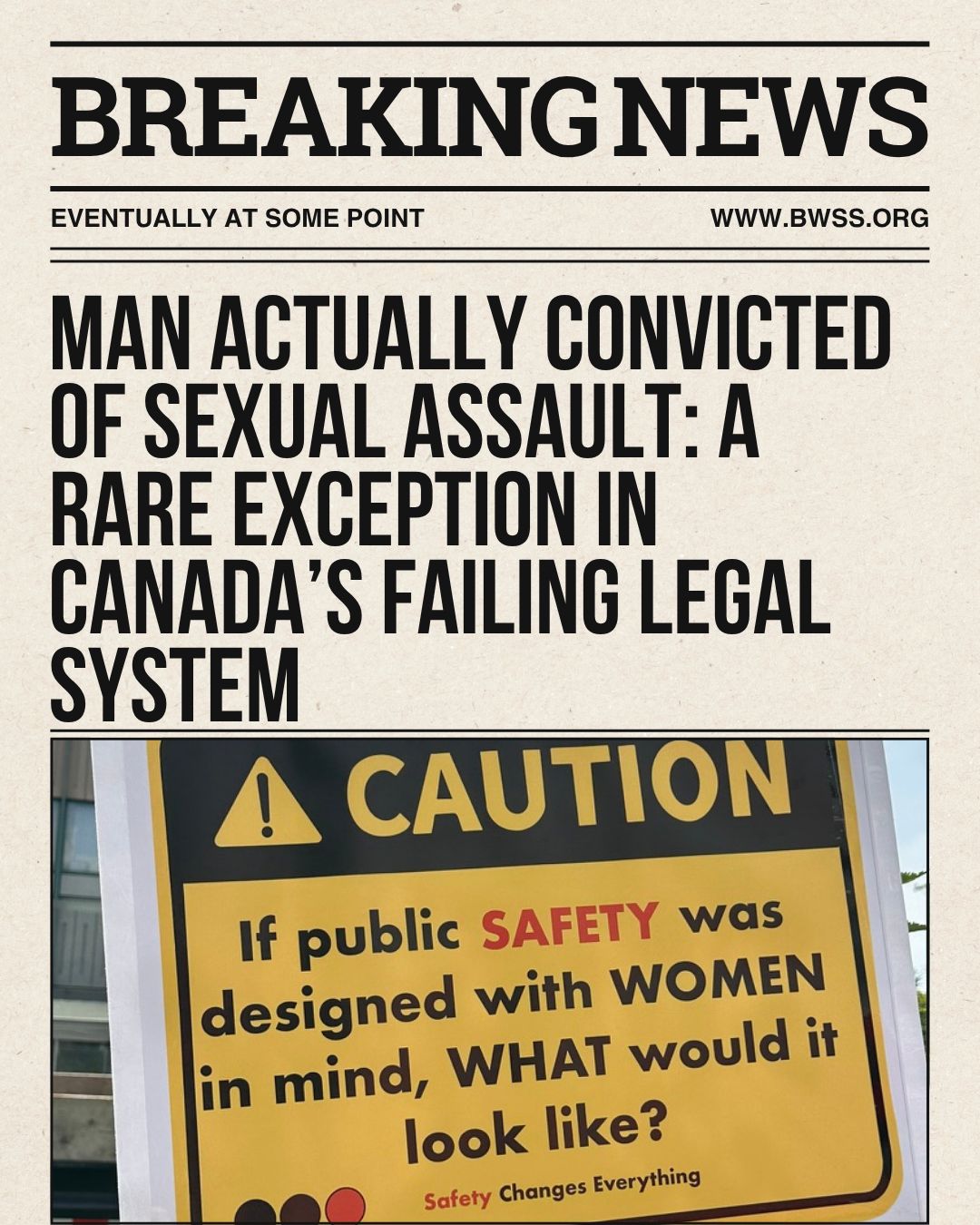
Our Analysis
The Barrett decision is not an isolated anomaly—it’s part of a long-standing and deeply embedded pattern in the criminal legal system that enables male violence through a range of escape routes. Automatism is just one of the latest tools in a legal toolbox that makes conviction for sexual assault and domestic violence a statistical rarity, not the norm.
While the public may assume that being charged with sexual assault leads to legal consequences, the reality is far bleaker. At every stage—from police reporting to Crown decision-making to trial—survivors are systematically disbelieved, retraumatized, and abandoned. Add to that defences like “rough sex”, R v Jordan, and now automatism, and the message becomes clear: unless a perpetrator confesses, is caught on camera, or voluntarily pleads guilty, conviction is unlikely.
The standard isn’t justice. It’s exceptionalism.
The defence of automatism rests on the notion that a man can consume drugs, engage in violent sexual acts, and be found not responsible because he was too intoxicated to form intent. But this logic creates a dangerous precedent: the more disconnected from reality a man claims to be, the more likely he is to be absolved of accountability. The legal system asks not what happened to the victim, but what was going on in the mind of the perpetrator.
This framework benefits those who use violence. Survivors must recall events with perfect clarity, show no signs of trauma, and be deemed credible under aggressive cross-examination. Meanwhile, perpetrators can claim they were too drunk, too traumatized, or too delusional to be held responsible. The burden of proof remains impossibly high for survivors—and vanishingly low for those who harm them.
Media Must Reframe the Story
It is time for the news media to flip the narrative.
Instead of reporting every time a man is charged with assault or sexual violence—while knowing that charges are often dropped, stayed, or acquitted—reporters should start treating conviction as newsworthy precisely because it is so rare. The question isn’t why survivors don’t report. The question is: What happens when they do? And far too often, the answer is nothing.
Imagine if every headline read:
“Man Actually Convicted of Sexual Assault: A Rare Exception in Canada’s Failing Legal System.”
This framing would tell the truth about how uncommon it is for survivors to see any form of justice. It would shift public understanding away from individual cases and toward the systemic failure that allows gender-based violence to flourish.
The Broader Cost of Legal Excuses
Automatism is part of a broader set of legal, cultural, and institutional justifications for male violence—whether it’s intoxication, childhood trauma, mental illness, or stress. While these may be real factors in a person’s life, they should never be used to erase harm. Women live with trauma, poverty, and illness every day—and they don’t commit acts of sexual violence.
We are witnessing a legal system that is increasingly designed to protect the “morally innocent” perpetrator while gaslighting the survivor. If a woman is assaulted in the night, in public, by a stranger who strips off his clothes and pushes her down stairs, and the court says “yes, but he was too high to be responsible”—what exactly does a conviction look like anymore?
This case reinforces the urgent need to redefine public safety from the perspective of survivors. At BWSS, our #DesignedWithSurvivors campaign challenges governments, institutions and the general public to recognize violence against women and gender-based violence as a public safety crisis—not a private matter or unfortunate anomaly.
We are calling for legal systems that prioritize survivor safety, public policy that addresses the structural conditions fueling violence, and accountability measures that make prevention—not just punishment—a core function of public safety.
Because when the law excuses violence, and systems dismiss survivors, public safety doesn’t exist—it’s an illusion.
The defence of automatism didn’t begin with Barrett, and it won’t end there. Until we confront the fact that our legal system is not built to deliver justice for survivors, and until we demand media coverage that reflects this systemic failure, the cycle of violence and impunity will continue.
Conviction for sexual assault should not be the exception. But in Canada’s current system—it is. And that should be the story.




Whoever wants to fight domestic violence against women probably must also advocate for a legal ban of child corporal punishment. Research in the field of peace studies (e.g. by Franz Jedlicka) increasingly show a linkage (intersectionality).
Barbara